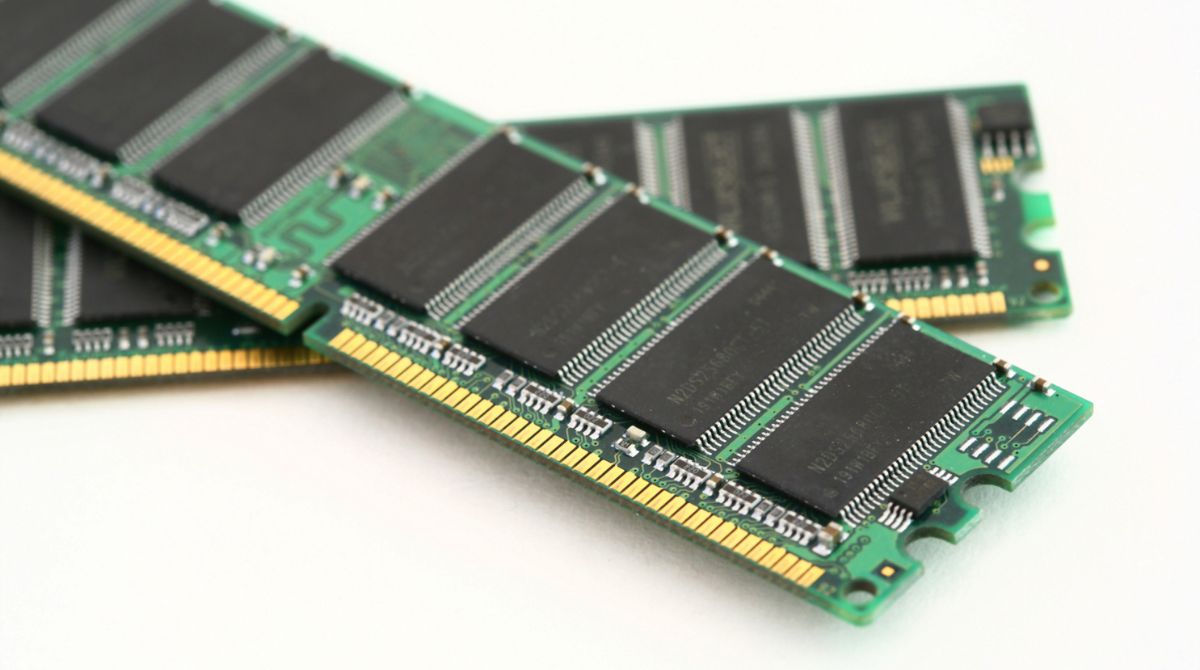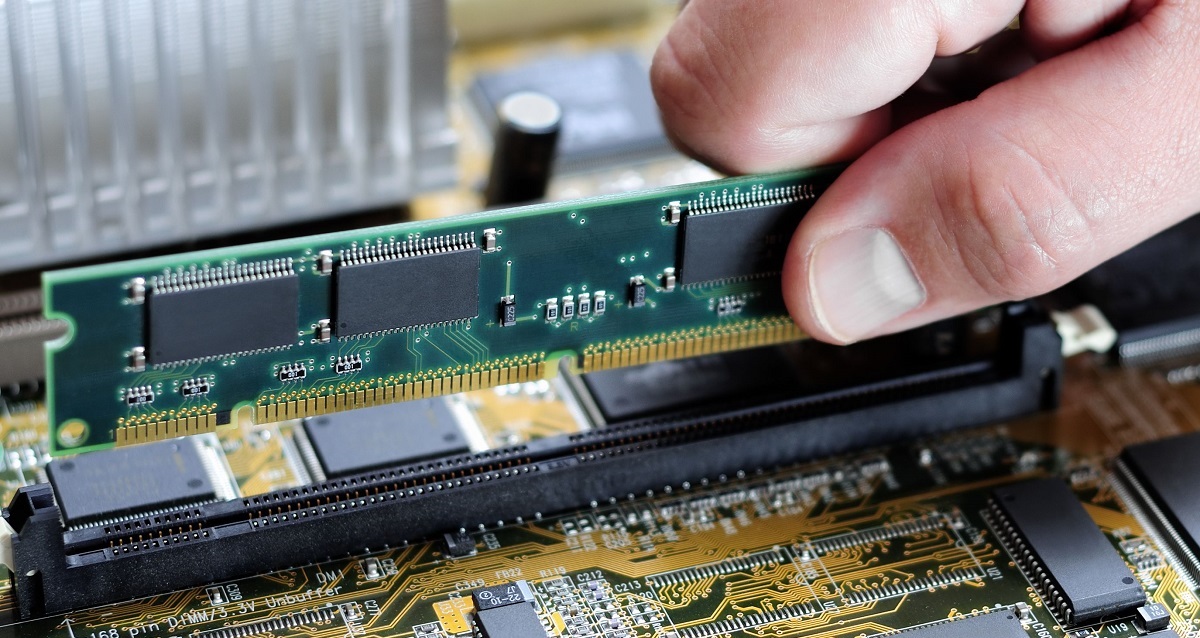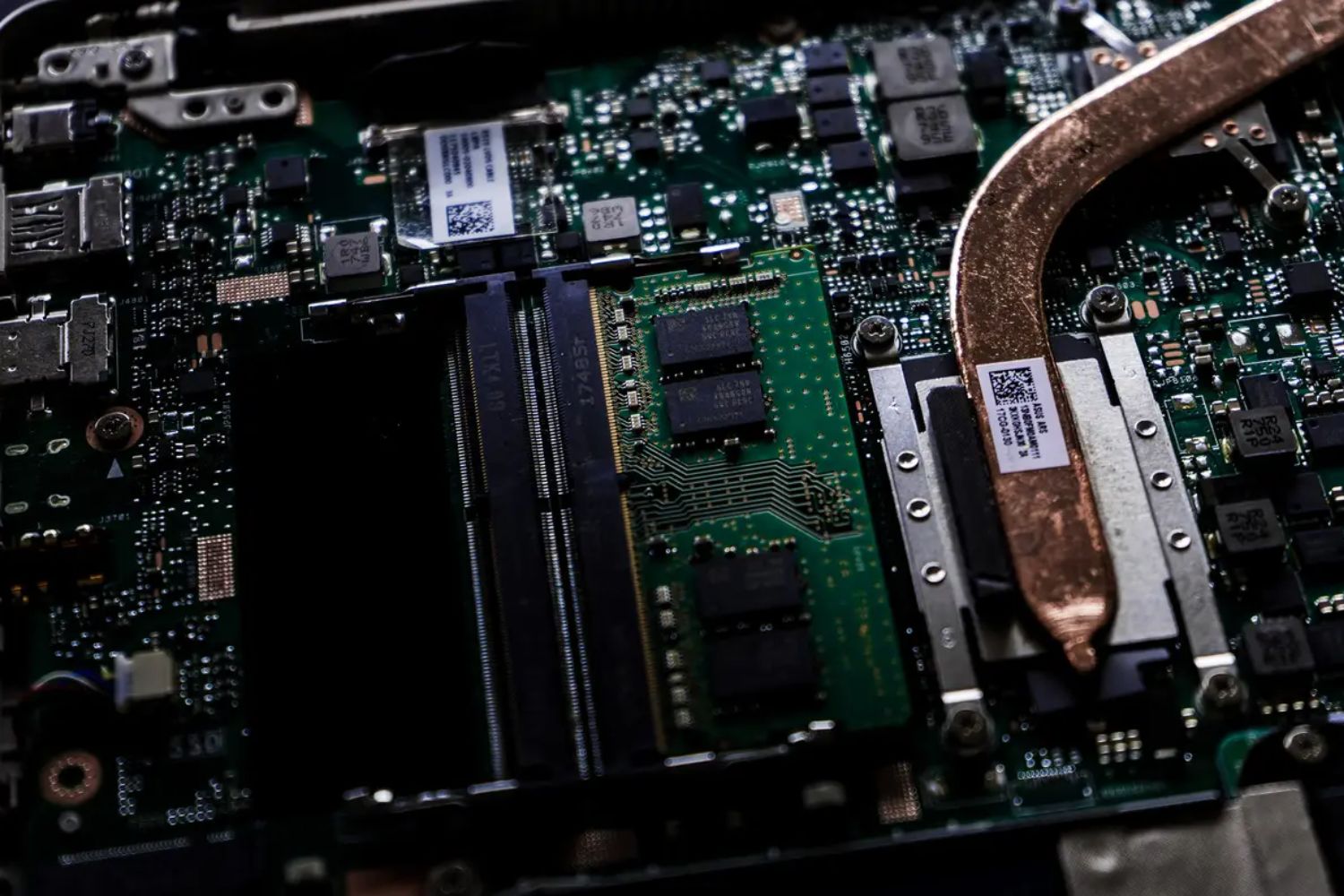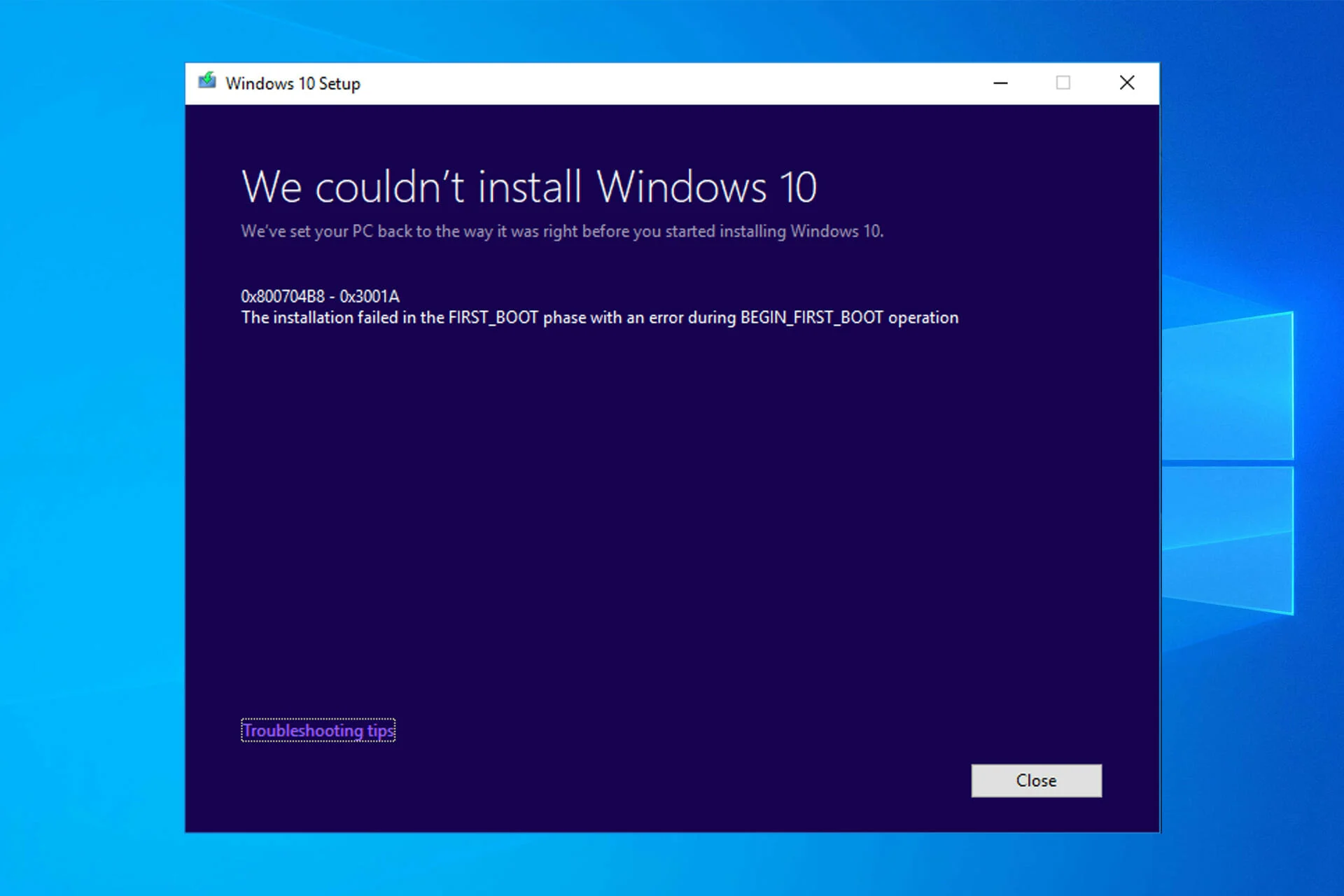Introduction
Welcome to the digital age, where technology continues to evolve at a rapid pace, forever changing the way we live, work, and communicate. In the heart of this digital revolution, our trusty computers play a crucial role in keeping us connected and productive. But have you ever wondered what makes your computer perform at its best? One of the key components that significantly impacts your computer’s performance is RAM.
RAM, short for Random Access Memory, is a vital element that determines how efficiently your computer can handle tasks and run applications. It acts as a temporary storage space for data that the computer needs to access quickly. The more RAM you have, the more resources your computer has readily available, resulting in faster and smoother operations.
In this article, we will delve deep into the importance of ensuring you have enough RAM in your computer. We will explore how RAM affects your computer’s performance, the benefits of having ample RAM, the consequences of not having enough RAM, and how to determine if you need to upgrade your RAM. So, let’s dive in and uncover how this crucial component impacts your overall computing experience.
What Is RAM?
Before we dive into the importance of having enough RAM, it’s essential to understand what RAM is and how it functions within your computer’s architecture. RAM, which stands for Random Access Memory, is a type of volatile memory that stores data and instructions that your computer’s processor needs to access quickly. Unlike the long-term storage capacity of your hard drive or SSD, RAM provides the temporary storage necessary for your computer to perform tasks in real-time.
Think of RAM as your computer’s short-term memory. When you open an application or process a task, the required data and instructions are loaded into the RAM for easy and quick access. This allows the processor to retrieve the necessary information rapidly, speeding up the overall performance of your computer.
RAM operates on a principle known as random access, which means that any area of memory can be accessed directly, regardless of its location. This random access capability enables the processor to read and write data to the RAM quickly and efficiently, making it an essential component for optimal computer performance.
RAM comes in various types and capacities. The most common type is dynamic RAM (DRAM), which uses tiny capacitors to store each bit of data. Another type is static RAM (SRAM), which uses flip-flops to store data. Additionally, RAM capacity is measured in gigabytes (GB), with higher numbers indicating more abundant memory for your computer to work with.
It’s important to note that RAM is different from your computer’s storage, such as the hard drive or SSD, which stores data even when the computer is powered off. RAM’s contents are cleared when the computer shuts down, as it is primarily used for real-time data processing and temporary storage while the computer is running.
Now that we have a solid understanding of what RAM is and how it functions, let’s explore how it has a direct impact on your computer’s performance.
How Does RAM Affect Your Computer’s Performance?
RAM plays a vital role in influencing your computer’s overall performance. It directly impacts how quickly and efficiently your computer can execute tasks and run applications. Let’s explore how RAM affects your computer’s performance in more detail.
First and foremost, RAM allows your computer to multitask effectively. When you have ample RAM, your computer can store and access data from multiple programs simultaneously. This means you can have multiple applications running concurrently without experiencing significant slowdowns or delays. Whether you’re streaming a video, editing a document, browsing the web, or running memory-intensive programs like video editing software or games, having sufficient RAM ensures that your computer can handle these tasks smoothly.
Furthermore, RAM affects the speed at which data can be read and written to your computer’s storage devices. When data is accessed from your hard drive or SSD, it is temporarily stored in the RAM for quick retrieval by the processor. This allows for faster data transfer rates and reduces the wait time associated with accessing data from the storage device directly. As a result, programs and files can be opened and saved more swiftly, enhancing your overall computing experience.
In addition to multitasking and data transfer speed, RAM also plays a crucial role in optimizing system performance. When you run an application, the operating system allocates a portion of the RAM to the program, allowing it to load and run efficiently. If your computer doesn’t have enough RAM, the operating system has to compensate by using virtual memory, which involves swapping data between the RAM and the hard drive or SSD. This process, known as paging or swapping, significantly slows down the system since accessing data from the storage device is much slower than accessing it from RAM. The more RAM you have, the more smoothly applications can run without relying on virtual memory, minimizing performance bottlenecks.
It’s worth noting that the impact of RAM on computer performance is more pronounced when dealing with memory-intensive tasks such as video editing, 3D modeling, gaming, or running multiple virtual machines. These tasks require a significant amount of memory to store and manipulate data effectively. Consequently, having abundant RAM is crucial for ensuring smooth and efficient performance in such scenarios.
Now that we have explored how RAM affects your computer’s performance, let’s delve into the importance of having enough RAM for optimal computing.
Importance of Having Enough RAM
Having enough RAM is essential for maximizing your computer’s performance and ensuring a smooth and efficient computing experience. Let’s explore the importance of having ample RAM in more detail.
One of the primary benefits of having enough RAM is improved multitasking capabilities. Multitasking is a common practice in today’s digital world, where we often have multiple applications running simultaneously. Whether you’re working on a document, browsing the web, streaming media, or chatting with friends, having sufficient RAM allows your computer to handle these tasks without slowing down or experiencing lag. With enough RAM, you can seamlessly switch between applications, run resource-intensive programs, and keep your workflow uninterrupted.
In addition to multitasking, having sufficient RAM ensures faster and more efficient data processing. When your computer has ample RAM, it can store a significant amount of data in memory, reducing the need to access information from slower storage devices, such as hard drives or SSDs. This improved data processing speed translates to quicker program launches, faster file transfers, and overall snappier system responsiveness.
Another important aspect where having enough RAM is crucial is in gaming. Modern games require a considerable amount of memory to load and render high-resolution textures, animations, and complex game assets. With ample RAM, you can enjoy a smoother gaming experience with faster load times, reduced stuttering, and improved frame rates. Insufficient RAM can result in game crashes, laggy gameplay, and longer loading times, compromising your gaming experience.
Furthermore, having sufficient RAM enhances the performance of memory-intensive applications like video editing software, design software, and virtual machines. These programs require substantial memory resources to process and manipulate large files and datasets efficiently. By providing enough RAM, you ensure the smooth operation of these applications, allowing for faster rendering times, smoother graphics, and improved productivity.
Having ample RAM is also important for future-proofing your computer. Technology evolves rapidly, and the software and applications we use become increasingly resource-demanding over time. By having enough RAM, you allow your computer to handle future updates and software advancements, ensuring compatibility and optimal performance without the need for immediate upgrades.
Overall, having enough RAM is essential for your computer to perform at its best. It enhances multitasking capabilities, improves data processing speed, optimizes gaming performance, facilitates memory-intensive tasks, and future-proofs your system. So, consider upgrading your RAM if needed to unlock the full potential of your computer and enhance your computing experience.
Benefits of Having Ample RAM
Having ample RAM in your computer offers numerous benefits that significantly enhance your overall computing experience. Let’s explore some of the key advantages of having sufficient RAM.
First and foremost, ample RAM allows for smooth multitasking. When you have enough memory, you can seamlessly switch between applications without experiencing slowdowns or performance issues. Whether you’re working on complex projects, browsing the internet while streaming media, or running resource-intensive software, having abundant RAM ensures that your computer can handle these tasks simultaneously without sacrificing performance.
In addition to multitasking, having ample RAM improves the speed and efficiency of your computer. With more memory available, your computer can store and access data quickly, reducing the need to rely on slower storage devices like hard drives or SSDs. This results in faster program launches, quicker file transfers, and improved overall system responsiveness. Tasks that require substantial memory resources, such as video editing, 3D rendering, and data analysis, can be completed more swiftly and efficiently with ample RAM.
Another significant benefit of having ample RAM is improved gaming performance. Gaming enthusiasts know the importance of having enough memory to run demanding games smoothly. With sufficient RAM, your computer can load game assets quickly, render high-resolution textures and animations seamlessly, and maintain steady frame rates. This leads to a more immersive and enjoyable gaming experience without stuttering, lag, or crashes.
Ample RAM is also beneficial for individuals who work with memory-intensive applications. Designers, architects, engineers, and video editors often rely on software that requires a substantial amount of memory to process large files and manipulate complex data. With enough RAM, these professionals can work efficiently, perform tasks seamlessly, and achieve faster rendering times, ultimately improving productivity and workflow.
Having sufficient RAM also helps to future-proof your computer. As technology continues to advance, software and applications become more resource-demanding. By having ample memory, you ensure that your computer can handle future updates, software upgrades, and new releases without experiencing performance issues. This allows you to stay up-to-date with the latest technologies and software advancements without the need for immediate hardware upgrades.
Overall, the benefits of having ample RAM are vast. It improves multitasking capabilities, enhances system speed and responsiveness, optimizes gaming performance, facilitates memory-intensive tasks, and future-proofs your computer. Investing in enough RAM ensures that your computer can handle the demands of modern computing, enabling you to work seamlessly, play games smoothly, and enjoy an overall enhanced computing experience.
Consequences of Insufficient RAM
Insufficient RAM in your computer can have significant consequences on its overall performance and usability. Let’s explore some of the consequences that can arise from not having enough RAM.
One of the most evident consequences of insufficient RAM is reduced multitasking capabilities. With limited memory, your computer may struggle to handle multiple applications simultaneously, causing slowdowns, lags, and even crashes. Switching between programs becomes slower, and tasks that require a significant amount of memory, such as video editing or running virtual machines, may become virtually impossible to perform smoothly.
In addition to multitasking issues, not having enough RAM can severely impact your computer’s speed and efficiency. When your computer runs out of memory, it compensates by using virtual memory, which involves swapping data between the RAM and the hard drive or SSD. This process, known as paging or swapping, significantly decreases performance, as accessing data from storage devices is much slower than accessing it from the RAM. Consequently, you may experience a noticeable slowdown in application launches, file transfers, and overall system responsiveness.
Another consequence of insufficient RAM is poor gaming performance. With limited memory, your computer may struggle to load game assets, resulting in longer loading times and stuttering gameplay. The lack of memory can also lead to frequent frame rate drops, causing a choppy and less immersive gaming experience.
Insufficient RAM can also impact productivity and workflow, especially for individuals who work with memory-intensive applications. Designers, architects, engineers, and video editors may experience significant slowdowns when working with large files or complex data sets. Rendering times may be significantly increased, and tasks may take much longer to complete, leading to frustration and reduced productivity.
Furthermore, not having enough RAM can limit your ability to run the latest software and applications. As technology evolves, software becomes more resource-demanding, requiring larger amounts of memory to run smoothly. Without sufficient RAM, you may encounter compatibility issues and performance bottlenecks when trying to use newer software releases.
In summary, the consequences of insufficient RAM include reduced multitasking capabilities, decreased system speed and efficiency, poor gaming performance, hampered productivity, and limitations in running modern software. It’s crucial to ensure you have enough RAM to avoid these consequences and fully harness the potential of your computer.
How to Determine If You Need More RAM
Determining whether you need more RAM in your computer is a critical step in optimizing its performance. Here are some key indicators to help you assess if you require additional memory:
1. System slowdowns: If you notice that your computer is becoming sluggish, taking longer to open applications, or experiencing delays when switching between tasks, it could be a sign that you need more RAM. Insufficient memory can cause your system to rely heavily on virtual memory, resulting in performance bottlenecks.
2. High memory usage: Monitor your computer’s memory usage using the built-in task manager or third-party software. If you frequently find your memory usage maxed out or approaching its limits, it indicates that your current RAM capacity may not be sufficient to handle your workload efficiently.
3. Memory-intensive tasks: If you regularly engage in memory-intensive activities such as video editing, graphic design, 3D modeling, or running virtual machines, it’s crucial to have enough RAM. These tasks consume a significant amount of memory, and insufficient RAM can lead to slow performance and delays in completing your work.
4. Gaming performance: Gamers should pay attention to their system’s performance while playing resource-intensive games. If you experience frequent frame rate drops, long loading times, or laggy gameplay, it could be a sign that your system requires more RAM to handle the demands of modern games.
5. Resource monitor analysis: Use the resource monitor tool on your computer to analyze the memory usage of specific applications. If you notice that certain applications consistently consume a large portion of your RAM, upgrading your memory can help alleviate performance issues related to those programs.
6. Future software requirements: Consider the future software requirements of the applications you intend to use. Determine the recommended amount of RAM specified by software developers, keeping in mind that newer software versions often have higher memory demands. If your current RAM falls short of these requirements, it may be time to consider upgrading.
When evaluating whether you need more RAM, it’s essential to consider your specific computing needs and the tasks you perform regularly. If you find that your computer meets one or more of the above criteria, it is likely that upgrading your RAM will significantly improve your system’s performance and ensure a smoother computing experience.
Factors to Consider When Upgrading RAM
When considering upgrading your RAM, there are several important factors to take into account to ensure a successful and compatible upgrade. Here are some key factors to consider when upgrading your computer’s memory:
1. Compatibility: Check the specifications of your computer’s motherboard to determine the type of RAM it supports. This includes the speed (e.g., DDR3, DDR4), capacity (e.g., 8GB, 16GB), and form factor (e.g., DIMM, SODIMM). Ensure that the RAM you choose is compatible with your system to avoid any compatibility issues.
2. Maximum Supported Capacity: Determine the maximum amount of RAM your motherboard or computer can support. This information can usually be found in the computer’s user manual or by researching the manufacturer’s website. Upgrading your RAM to the maximum supported capacity will provide the best performance boost for your system.
3. Operating System Requirements: Consider the memory requirements of your operating system. Different versions of operating systems have varying memory recommendations. Ensure that your upgraded RAM meets or exceeds these requirements to optimize performance and avoid any potential compatibility issues.
4. Usage and Workload: Assess your specific usage and workload requirements. If you primarily use your computer for basic tasks like browsing the internet, word processing, or email, a moderate amount of RAM may suffice. However, if you engage in memory-intensive activities such as video editing, gaming, or running virtual machines, you may benefit from a higher RAM capacity to ensure smooth performance.
5. Budget: Take into consideration your budget when upgrading your RAM. RAM prices can vary based on factors such as capacity, speed, and brand. Determine the amount of RAM your system needs and shop around for the best prices to ensure a cost-effective upgrade.
6. Future Upgradability: Consider your future upgrade plans and the longevity of your computer. If you plan to keep your system for an extended period, it may be worth investing in a higher capacity RAM now to accommodate future software and resource demands.
7. Installation: Ensure that you are comfortable with the installation process or seek assistance from a professional if needed. Upgrading RAM typically involves removing and replacing modules, so it is important to follow proper handling and installation procedures to avoid any damage.
8. Brand and Reliability: Choose reputable and reliable brands when purchasing RAM modules. Quality RAM from trusted manufacturers will provide better stability and performance. Reading reviews and seeking recommendations can help in selecting the right brand for your upgrade.
By considering these factors, you can make an informed decision when upgrading your RAM. Taking the time to assess compatibility, system requirements, usage needs, budget, and future plans will help ensure that your new RAM is a suitable and beneficial addition to your computer system.
Conclusion
RAM, also known as Random Access Memory, plays a crucial role in determining the performance and efficiency of your computer. It acts as a temporary storage space for data and instructions that your computer’s processor needs to access quickly. Having enough RAM is essential for multitasking, smooth data processing, optimal gaming performance, and efficient operation of memory-intensive tasks.
Insufficient RAM can lead to consequences such as system slowdowns, reduced multitasking capabilities, poor gaming performance, and hampered productivity. By upgrading your RAM, you can experience the benefits of smoother multitasking, faster data processing, improved gaming performance, and heightened productivity.
When considering a RAM upgrade, it’s important to consider factors such as compatibility with your system, maximum supported capacity, operating system requirements, usage needs, budget, future upgradability, and brand reliability. Taking these factors into account will ensure a successful and compatible RAM upgrade that meets your specific computing requirements.
Remember, upgrading your RAM can significantly enhance your computer’s performance and provide a better computing experience. Whether you’re a casual user performing day-to-day tasks or a professional requiring high-performance capabilities, having ample RAM is crucial for unlocking the full potential of your computer.
Don’t overlook the importance of RAM in optimizing your computer’s performance. Upgrade your RAM, unleash its power, and enjoy a faster, more efficient, and seamless computing experience.

























